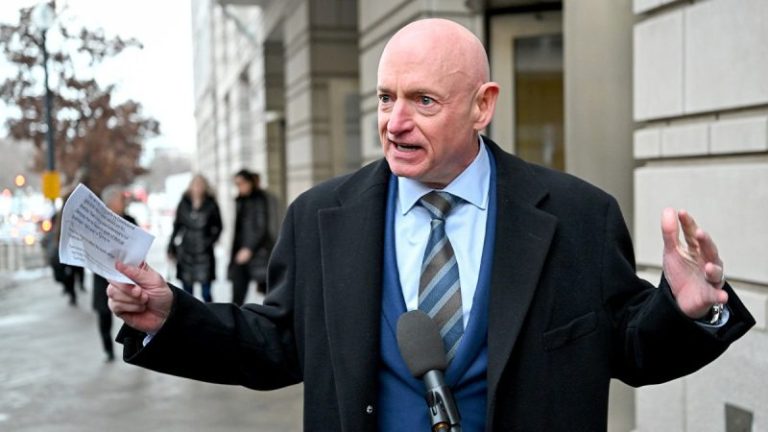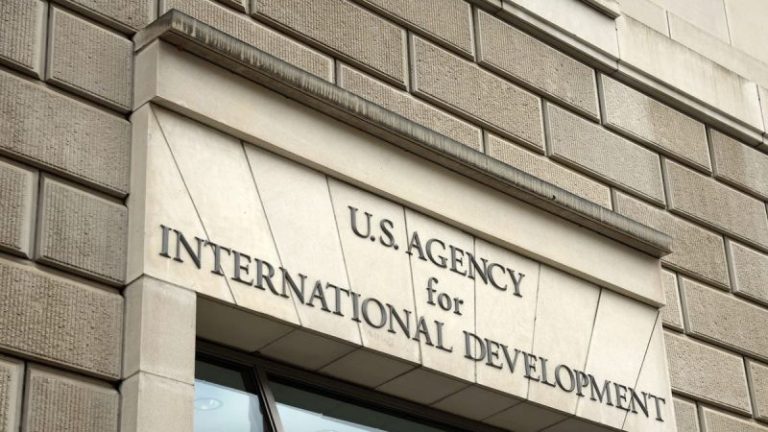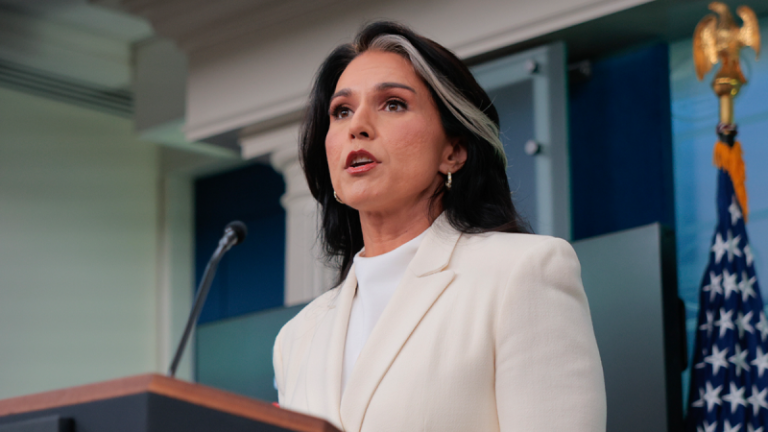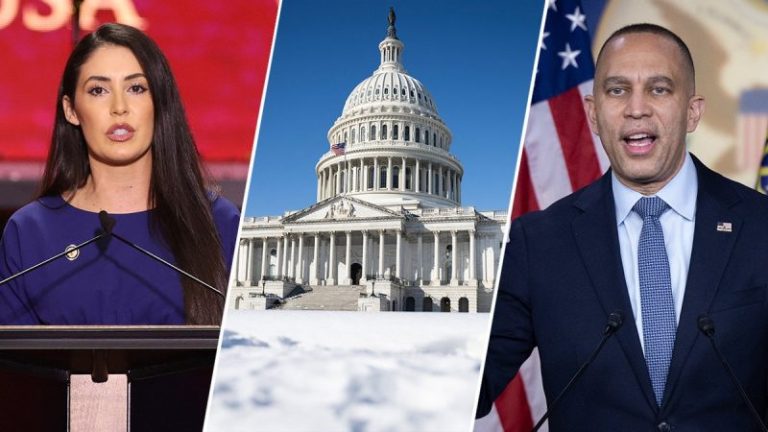Director of National Intelligence Tulsi Gabbard detailed her ongoing election security assessment in a letter to congressional lawmakers Monday, saying President Trump ‘specifically directed’ her to be present for the execution of a search warrant in Fulton County, Georgia last week as part of the probe.
Gabbard sent a letter, exclusively obtained by Fox News Digital, addressed to Senate Intelligence Committee Vice Chair Sen. Mark Warner, D-Va., and House Intelligence Committee Ranking Member Rep. Jim Himes, D-Conn. The letter was also sent to House and Senate leadership, as well as GOP leadership on both committees.
The letter is in response to one sent last week by Warner and Himes, in which they request Gabbard brief them on why she was present at the FBI search of an election office in Fulton County, Ga. last month.
Gabbard announced in April 2025 that ODNI was investigating electronic voting systems in order to protect election integrity.
In the letter, obtained by Fox News Digital, Gabbard said President Trump ‘specifically directed’ her to be at the FBI’s execution of a search warrant on the Office of the Clerk of the Court of Fulton County, Georgia last month—on Jan. 28, 2026.
‘For a brief period of time, I accompanied FBI Deputy Director Bailey and Atlanta Acting Special Agent in Charge Pete Ellis in observing FBI personnel executing that search warrant, issued by the United States District Court for the Northern District of Georgia pursuant to a probable cause finding,’ she writes.
Gabbard said her ‘presence was requested by the President and executed under my broad statutory authority to coordinate, integrate, and analyze intelligence related to election security, including counterintelligence (CI), foreign and other malign influence and cybersecurity.’
‘The FBI’s Intelligence/Counterintelligence divisions are one of the 18 elements that I oversee,’ she said.
Gabbard said that in twelve FBI field offices across the country, including the Atlanta Field Office, the senior FBI official (assistant director in charge or special agent in charge) is ‘dual-hatted as my Domestic DNI-Representative.’
‘The Domestic DNI-Rep program was established in 2011 through a Memorandum of Understanding between the ODNI and FBI,’ Gabbard explained. ‘Domestic DNI-Reps are distributed by region and focus on specific domestic issues of concern or interest, including threats to critical infrastructure.’
Gabbard said that she has visited ‘several’ of her Domestic DNI-Reps across the country.
‘While visiting the FBI Field Office in Atlanta, I thanked the FBI agents for their professionalism and great work, and facilitated a brief phone call for the President to thank the agents personally for their work,’ Gabbard said. ‘He did not ask any questions, nor did he or I issue any directives.’
Gabbard stressed that the ODNI’s Office of General Counsel ‘has found my actions to be consistent and well within my statutory authority as the Director of National Intelligence.’
Last week, FBI agents were seen carrying out a search at an election hub in Fulton County, Georgia, a location that became ground zero for concerns and complaints about voter fraud beginning in 2020.
The search warrant authorized the seizure of election records, voting rolls and other data tied to the 2020 election, according to a copy of the warrant reviewed by Fox News.
Gabbard went on to address specific questions initially posed by Warner and Himes, first, detailing how election security ‘is a national security issue.’
‘Interference in U.S. elections is a threat to our republic and a national security threat,’ she writes. ‘The President and his Administration are committed to safeguarding the integrity of U.S. elections to ensure that neither foreign nor domestic powers undermine the American people’s right to determine who our elected leaders are.’
Gabbard said that President Trump ‘tasked ODNI with taking all appropriate actions’ under her statutory authorities towards ‘ensuring the integrity of our elections and specifically directed by observance of the execution of the Fulton County search warrant.’
Gabbard again noted that ODNI has been ‘actively reviewing intelligence reporting and assessments on election integrity’ since she took office.
‘As part of the National Counterintelligence and Security Center’s responsibility to lead, manage, and coordinate counterintelligence matters related to election security, NCSC personnel traveled with me to Fulton County to support this effort,’ Gabbard wrote. ‘They were not present during the execution of the warrant.’
Gabbard goes on to stress that the DNI has ‘broad authority to coordinate, integrate, and analyze intelligence related to election security.’ Gabbard also added that ODNI is ‘the lead intelligence agency in the Joint Cyber Planning Office,’ which coordinates and oversees the nation’s strategy to secure critical cyber infrastructure, ‘including cyber infrastructure used for elections.’
Gabbard also told lawmakers that ODNI ‘will not irresponsibly share incomplete intelligence assessments concerning foreign or other malign interference in U.S. elections.’
‘As I publicly stated on 10 April 2025, there is information and intelligence reporting suggesting that electronic voting systems being used in the United States have long been vulnerable to exploitation that could result in enabling determined actors to manipulate the results of the votes being cast with the intent of changing the outcome of an election,’ she wrote.
‘ODNI and the IC continue to collect and assess all available intelligence concerning this threat to ensure the security and integrity of our elections,’ she said.
In April 2025, Gabbard said ODNI is investigating election integrity. She said, at the time, that ODNI had ‘evidence of how electronic voting systems have been vulnerable to hackers for a very long time and vulnerable to exploitation, to manipulate the results of the votes being cast.’ Gabbard made the comments during a Cabinet meeting, stressing to the president that the information ‘further drives forward your m mandate to bring about paper ballots across the country so that voters can have faith in the integrity of our elections.’
Meanwhile, in the letter, Gabbard explained that the process of assessing the intelligence ‘ensures that the IC’s finished intelligence products are objective, independent of political considerations, and based on all available sources.’
‘I will share our intelligence assessments with Congress once they are complete,’ she said.
Gabbard said that the National Security Act of 1947 specifically highlights that the law does ‘not require that the president obtain approval from the congressional intelligence committees before initiating a significant intelligence activity.’
‘Moreover, the United States District Court for the Northern District of Georgia issued the search warrant on the Office of the Clerk of The Court of Fulton County under seal,’ she writes. ‘As such, I have not seen the warrant or the evidence of probable cause that the DOJ submitted to Court for approval.’
She added: ‘Therefore, the ODNI had no ability, authority, or responsibility to inform the committees about the search warrant ahead of its execution.’
President Trump last week touted Gabbard on her work to protect elections in the U.S.
‘She’s working very hard on trying to keep the election safe. And she’s done a very good job,’ Trump said. ‘And they, as you know, they got into the votes, you got a signed judge’s order in Georgia…And you’re going to see some interesting things happening. They’ve been trying to get there for a long time.’
Meanwhile, the Justice Department sued Fulton County in December seeking access to ballots related to the 2020 lawsuit, though the FBI’s search appears unrelated.
Fulton County is fighting the lawsuit and says the Justice Department has not made a valid argument for accessing the records.
Fox News’ Breanna Deppisch contributed to this report.
This post appeared first on FOX NEWS










